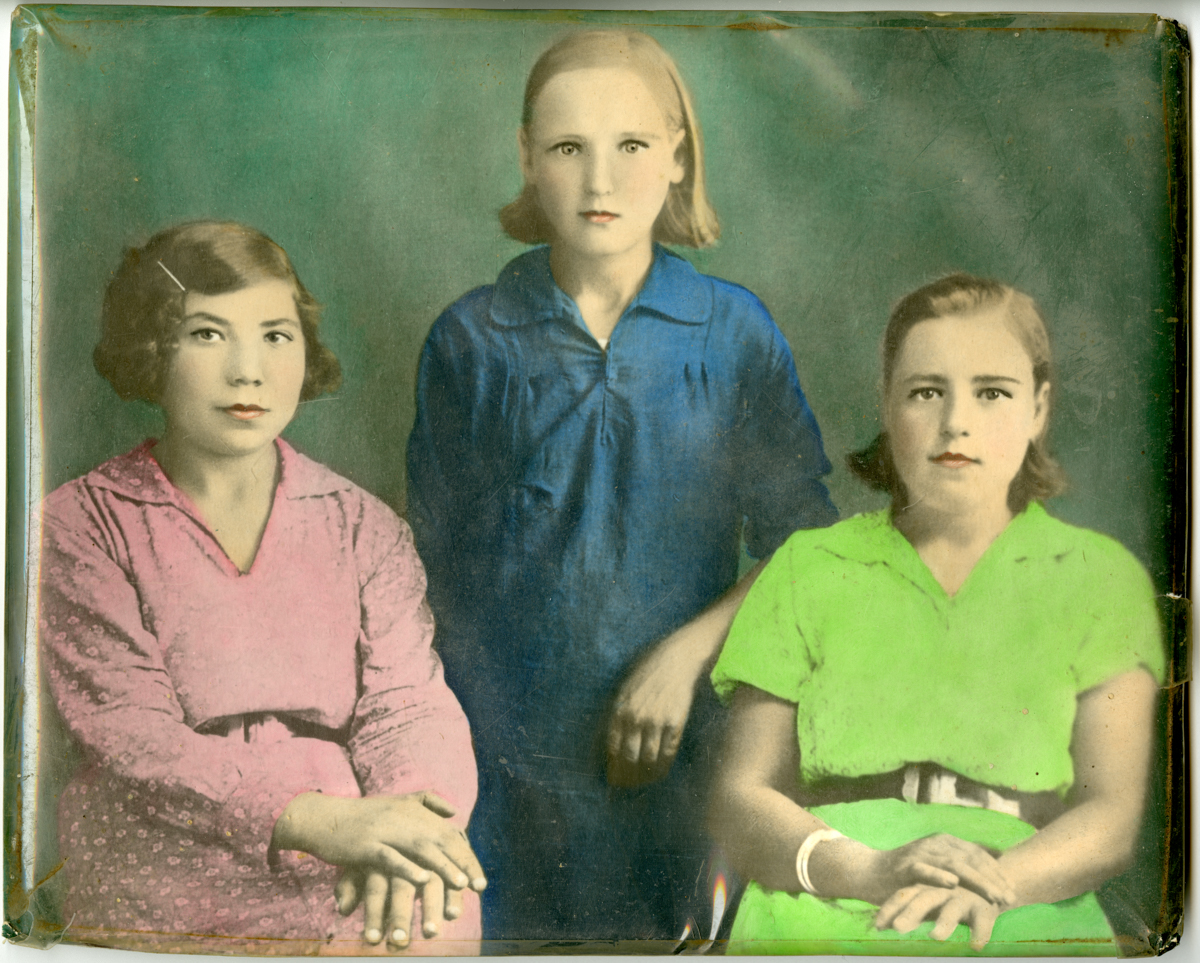My grandmother Zhenia in 1938 with Olia and Alissia

In my grandparents' living room in Maizières, north-eastern France, it was impossible to miss — displayed on the Mado sideboard, surrounded by childish trinkets that kept it company. I loved gazing at it, as though trying to unravel its mysterious aura. It was the only photograph on display in the house, offering a glimpse into my grandmother Zhenia’s former life. Despite the years gone by, I could still recognize her in the young woman wearing the tailored neon green dress.
A blend of gentleness and solemnity radiates from this hand-colored portrait, a frozen image of a distant, unreachable youth. I remember asking my grandmother to tell me about the two other young women posing beside her. Standing in the center, wearing a deep blue dress, was her younger sister Olia, flanked on her right by Zhenia’s inseparable friend, Alissia, in a pink floral dress. Near the cabinet that safeguarded this precious icon stood a round table overflowing with green plants — a kind of indoor garden that my grandmother tended with devotion.
Zhenia, you were never able to return home.
It was war, but also love, that parachuted you into France at the end of 1945.
March 1920 or 1921. Євгенія Ларіоновна Шкель, affectionately called Женя, was born in Maliiky, in the Polissya region of Ukraine, during a time of great upheaval. She grew up under Stalin’s dictatorship, a period marked by terror, bloody purges, and the Holodomor. She lived with her mother, Еuphrosine, and her younger sister, Оlia. Their father, labeled a "kulak," died prematurely before the war.
May 1942. Zhenia was torn away from her family, conscripted and deported to Nazi Germany as an Ostarbeiterin. Crammed into a freight train with a hundred other young women from her village, she was forced to work in an armaments factory in Beyrode, Thuringia. It was there that she met Ludovico Nimis, a soldier of Friulian origin who had been naturalized French just days before being sent to the war. When liberation came in 1945, Женя decided to follow him to France, hiding to avoid forced repatriation to the USSR.
Zhenia, how did you carry all of this with you, unable to share it with those closest to you?
In October 2022, during my second visit to Maliiky, Zhenia's birthplace, I stumbled upon the original photo that inspired this portrait. Оlia had chosen a small black-and-white print from her photo album to send an improved, enlarged, and hand-colored version to her elder sister — on the other side of the Iron Curtain. On the back of this somewhat solemn full-length studio portrait, Оlia’s faint, half-erased handwriting marked the occasion of her high school graduation, in 1938.
Zhenia, in the photo, you were 18 years old, with your whole life ahead of you.
Zhenia passed away in France in 1998, Olia in Ukraine in 2016.
